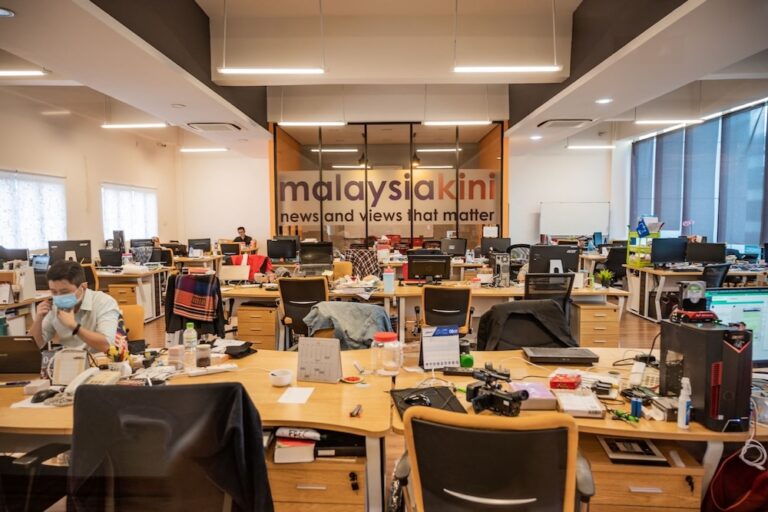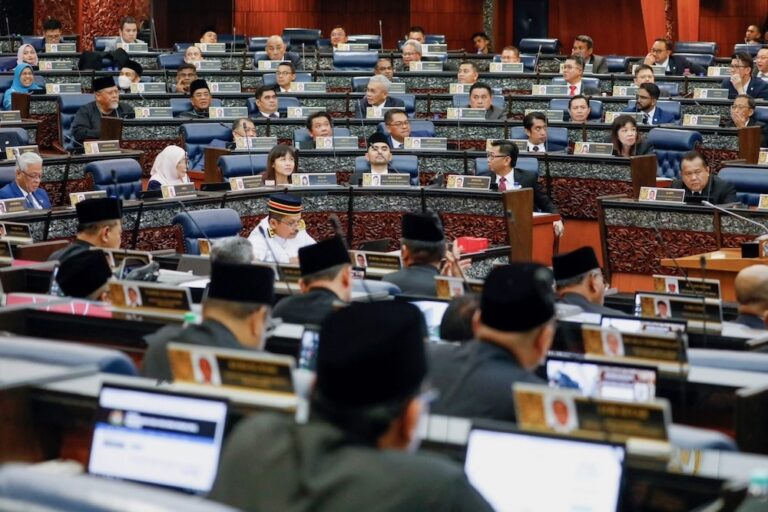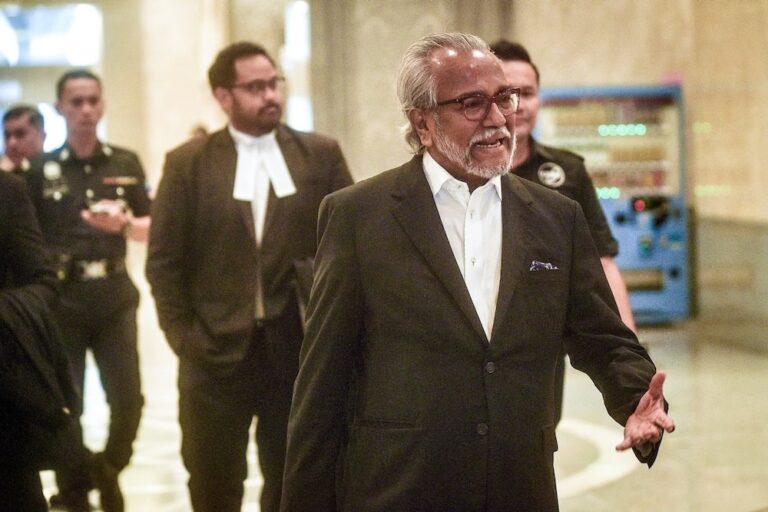A Member of Parliament is facing criminal investigation for expressing concerns over a proposal from the religious affairs minister.
This statement was originally published on CIJ’s Facebook page on 18 September 2024.
Last week, we issued a press statement with ARTICLE 19 Msia decrying the unwarranted investigation and the continued gendered attack against Teresa Kok. We urge the authorities to cease this investigation immediately and with attacks still mounting, we continue to call for the government to push back against these gender-based attacks.
On 10 September, Teresa Kok, the Member of Parliament for the constituency of Seputeh in Malaysia, was summoned for investigation to the Bukit Aman Police Headquarters following her response to a proposal from the religious affairs minister Mohd Na’im Mokhtar to make it mandatory for all restaurants and food businesses to acquire halal certification, except those selling pork or alcoholic drinks.
In a press release issued on 6 September, Teresa Kok stated the proposal to impose mandatory halal certification could cause problems to small businesses and have an impact on consumers’ right to choose, adding that the proposals undermine the diversity of Malaysian culture.
Teresa Kok was investigated under Section 298 and Section 505(b) of the Penal Code, as well as Section 233 of the Communications and Multimedia Act (CMA) 1998.
ARTICLE 19 and Centre for Independent Journalism (CIJ) have consistently called for Section 298 and Section 505 (b) of the Penal Code and Section 233 of the CMA to be repealed. All three provisions fail to meet international freedom of expression standards. Any restrictions on freedom of expression must satisfy a three-part test. Restrictions must be provided by law, and must only be imposed based on one of the legitimate aims set out in Article 19(3) of the International Covenant on Civil and Political Rights (ICCPR) – exhaustively listed as respect for the rights or reputations of others, the protection of national security, public order or public health or morals – and must conform to the strict test of necessity and proportionality. However, the provisions identified above go beyond these aims. Instead, they target expression protected by international human rights law.
“These investigations set a dangerous precedent for silencing legitimate criticism and shutting down important policy discussions. Lawmakers must be free to raise concerns, especially when the policy or law might have direct impact on livelihood of people. Subjecting a Member of Parliament to a criminal investigation for expressing these concerns is a clear overreach by the authorities,” said Senior Malaysia Program Officer Nalini Elumalai.
Teresa’s comments were policy-driven and focused on economic barriers, rather than religion. Parliamentarians who are answerable to their constituents must be able to question and debate government policies without fear of police investigations, especially when these questions pertain to public welfare and economic concerns. Investigating individuals for merely raising policy-related issues under the guise of the 3R (race, religion, and royalty) category, which has been used widely by the government under the pretext of taking action against expression that promote incitement. This is a gross misuse of power and is seen by activists as an attempt to stop public debate. This trend not only misinterprets legitimate policy inquiries as inflammatory but also undermines democratic governance by discouraging open, critical dialogue on matters of public interest.
Further, this investigation exacerbates gendered attacks against Kok. This is a pattern we have observed persisting against Malaysian women politicians. An unwarranted investigation provides another reason for these attacks to continue as we have already seen occur from other actors.
“Public policy must be shaped through open and respectful dialogue, not through intimidation and legal threats. The government must create a safe space for diverse perspectives to be voiced and debated without fear of retaliation. Investigating members of parliament for raising valid concerns undermines governance and public participation, thus creating a chilling effect on fundamental principles of democracy and the duty of care required of parliamentarians,” said Wathshlah Naidu, Executive Director of CIJ.
We urge the authorities to stop this unwarranted investigation immediately. The Madani government must also push forward its reform agenda by reviewing and amending laws that undermine the spirit of freedom of expression as guaranteed under Article 10 of the Federal Constitution and Article 19 of the Universal Declaration of Human Rights. Further, the government must initiate support and push back against the gender-based attacks against Teresa Kok.



